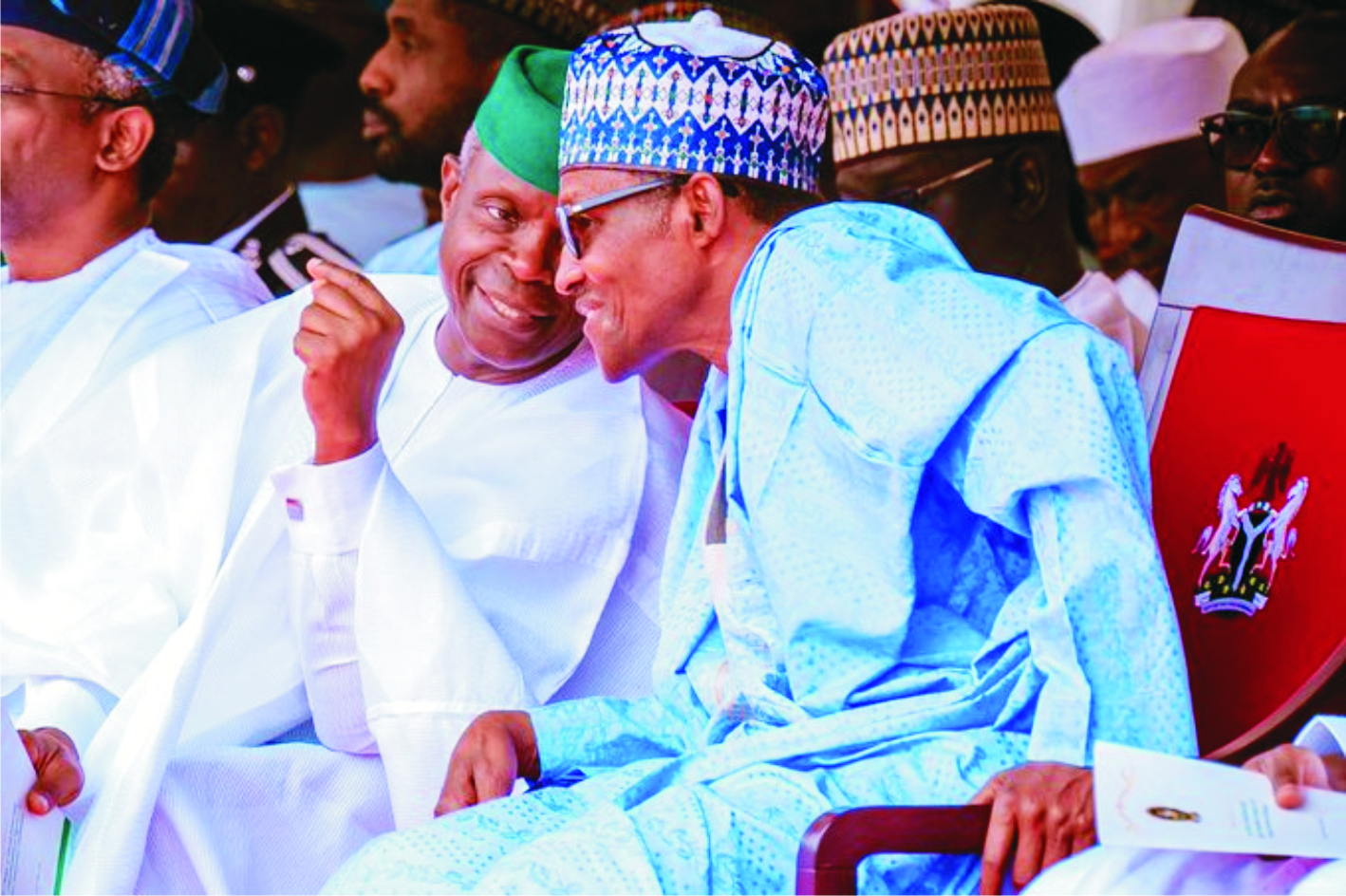Business
FG Earmarks N3.12trn For Debt Service In 2021

The Federal Government says it remains committed to meeting the nation’s debt obligations as N3.12trillion is earmarked for debt service in 2021 budget proposal.
President Muhammadu Buhari made this known when he presented the 2021 budget proposal of N13.08trillion to the National Assembly in Abuja, yesterday.
According to him, the amount represents an increase of N445.57 billion from N2.68 trillion in 2020.
“We remain committed to meeting our debt service obligations.
“Hence, we have provisioned N3.12 trillion for this in 2021, representing an increase of N445.57 billion from N2.68 trillion in 2020.
“A total of N2.183 trillion has been set aside to service domestic debts while N940.89 billion has been provided for foreign debt service.
“N220 billion is provided for transfers to the Sinking Fund to pay off maturing bonds issued to local contractors and creditors.’’
On the breakdown of the budget, Buhari said N3.85trillion had been earmarked for Capital Expenditure.
He said: “An aggregate sum of N3.85 trillion is expected to be available for capital projects in 2021”.
These include N1.80 trillion for MDAs’ capital expenditure; N745 billion for Capital Supplementation; N355 billion for Grants and Aid-funded projects and N20 billion for the Family Homes Fund.
Others are N25 billion for the Nigeria Youth Investment fund; N336 billion for 60 Government Owned Enterprises; N247 billion for capital component of Statutory Transfers; and N710 billion for projects funded by Multi-lateral and Bi-lateral loans.
According to the president, the 2021 capital budget is N1.15 trillion higher than the 2020 provision of N2.69 trillion.
He noted that, at 29 percent of aggregate expenditure, the provision moves closer to his administration’s policy target of 30 percent.
Buhari stated that the capital expenditure in 2021 remains focused on the completion of as many ongoing projects as possible, rather than the commencement of new ones.
He further disclosed that key capital spending allocations in the 2021 Budget include: Power: N198 billion (inclusive of N150 billion for the Power Sector Recovery Plan); Works and Housing: N404 billion; Transportation: N256 billion; Defence: N121 billion; Agriculture and Rural Development: N110 billion; Water Resources: N153 billion and Industry, Trade and Investment: N51 billion.
Others are: Education: N127 billion; Universal Basic Education Commission: N70 billion; Health: N132 billion; Zonal Intervention Projects: N100 billion; and Niger Delta Development Commission: N64 billion.’’
The president said his administration had made efforts to ensure equity in the distribution of projects and programmes in the proposed budget.
Business
Two Federal Agencies Enter Pack On Expansion, Sustainable Electricity In Niger Delta

Business
Why The AI Boom May Extend The Reign Of Natural Gas

Business
Ogun To Join Oil-Producing States ……..As NNPCL Kicks Off Commercial Oil Production At Eba

-

 Politics5 days ago
Politics5 days agoAPC Releases Adjusted Timetable For Nationwide Congresses, Convention
-

 Sports2 days ago
Sports2 days ago2026 WC: Nigeria, DR Congo Awaits FIFA Verdict Today
-
Sports5 days ago
DG NIS Wants NSC Board Constituted, Seeks Increased In Funding
-

 Business5 days ago
Business5 days agoCustoms Seek Support To Curb Smuggling In Ogun
-

 Featured4 days ago
Featured4 days agoINEC Proposes N873.78bn For 2027 Elections, N171bn For 2026 Operations
-

 Sports5 days ago
Sports5 days agoSWAN Rivers Set-up Five Functional Committees
-
Sports5 days ago
NSC Disburses N200m Training Grants To 26 Athletes
-
Sports5 days ago
‘NTF Will Build On Davis Cup Success For Brighter Future’

